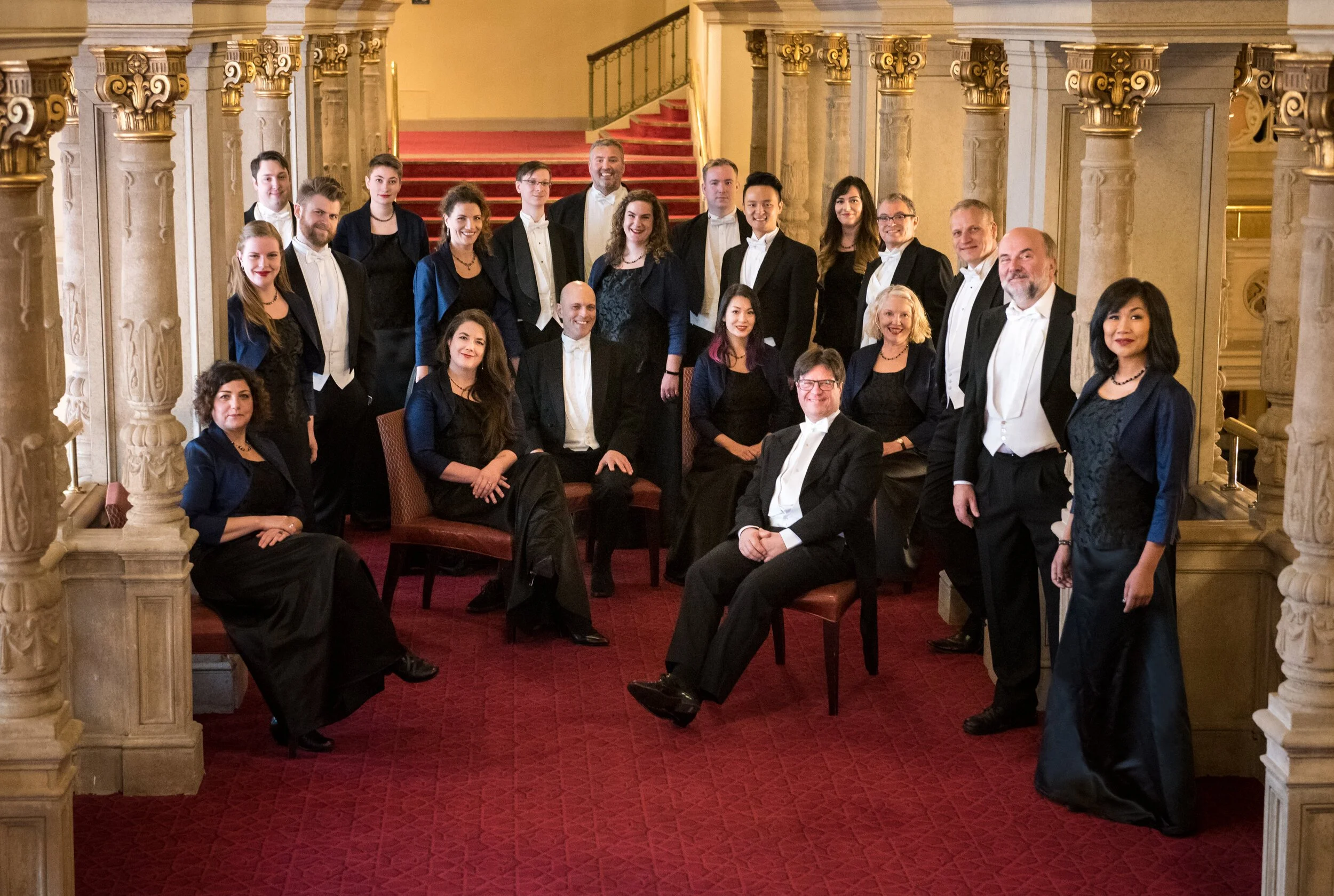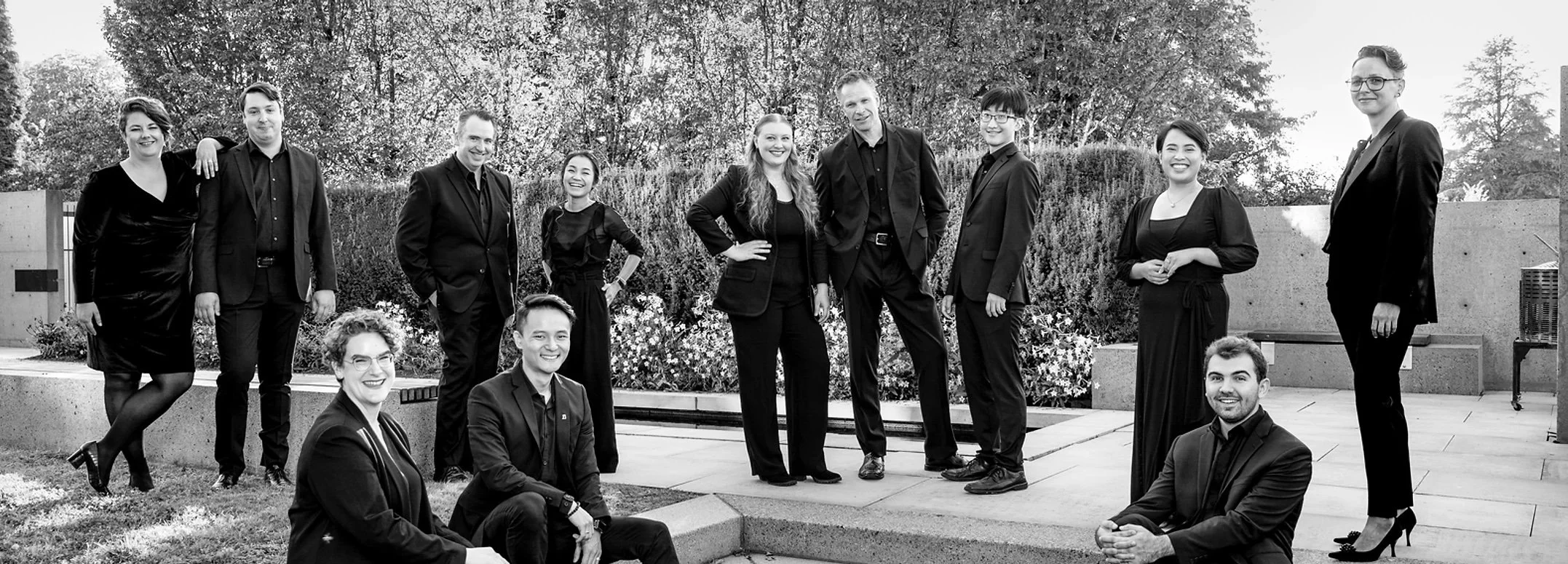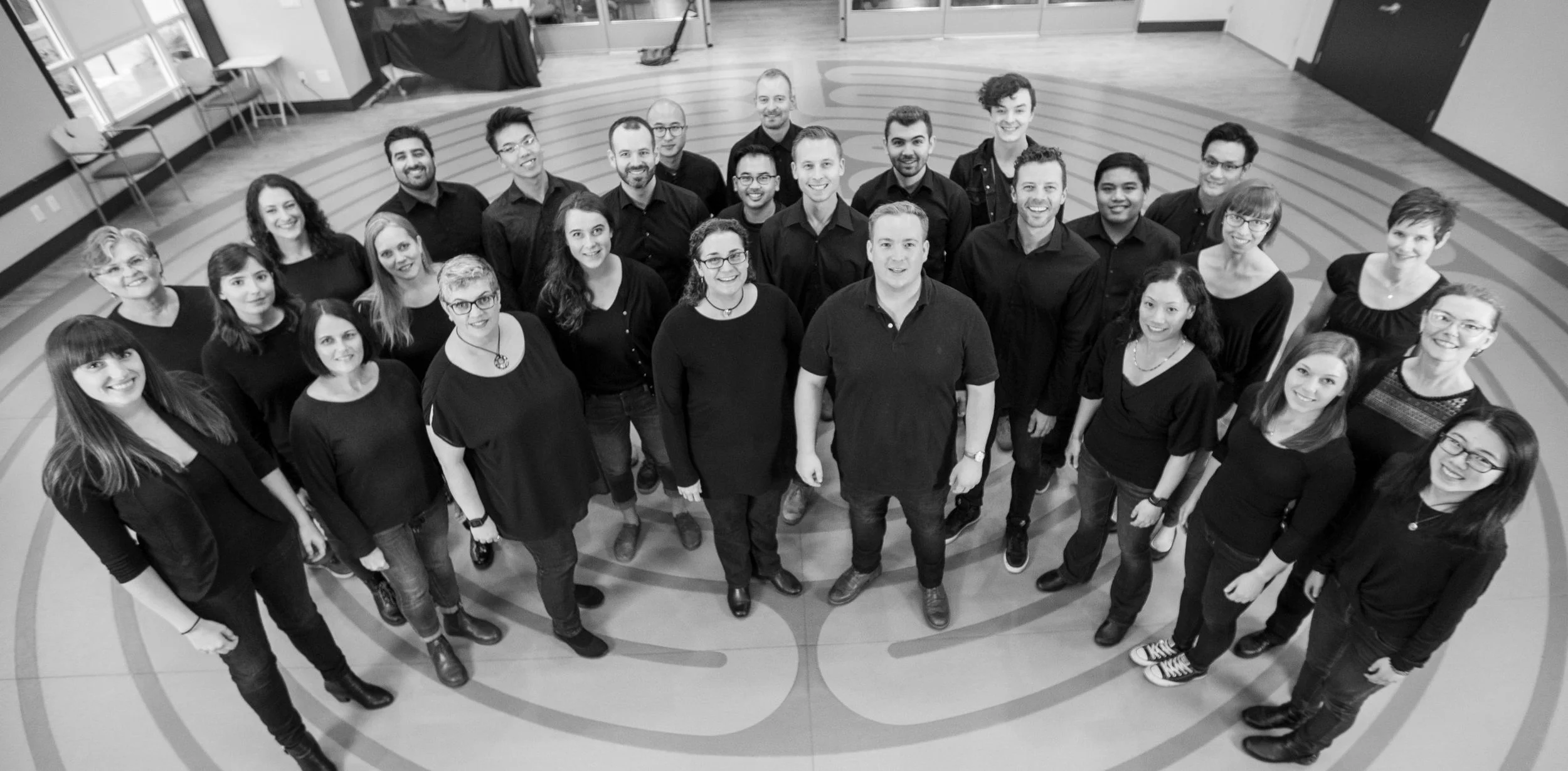Vancouver Chamber Choir serves up a Choral Feast that shows there's strength in numbers
Ensemble joins vocal forces with Vancouver Youth Choir, Laudate Singers, Vancouver Cantata Singers, musica intima, and Phoenix Chamber Choir for program spanning early music to Baltic modernism
The Vancouver Chamber Choir os welcoming a small army of other voices into its concert.
The Vancouver Chamber Choir presents A Choral Feast at the Orpheum on November 27
HOLDING DOWN TWO or more jobs is not only a condition of the precariat; it’s commonplace in the classical-music world as well. Consider choral director Kari Turunen, for example. Not only is he the artistic director of the Vancouver Chamber Choir, he led the annual Finnish-Swedish Song Celebration this June, will program the annual Tampere Vocal Music Festival next year, and has only recently stepped down from his responsibilities with the Aurore Renaissance Festival and the Finnish Choral Directors’ Association.
We’re lucky to have him here—and his assorted international experiences allow him to say, with great certainty, that he’s lucky to be here, too.
“Canada is a pretty good choral country,” Turunen contends, in a telephone interview from his Vancouver home. “I mean, there’s lots of choral scenes. So it’s to be expected that there’s lots of choirs and lots of activity.
“There are quite a few sharp points to the pyramid,” he adds, speaking more specifically about his adopted home. “Lots of really accomplished choirs. You might have lots of choirs in a town, and none of them all that excellent, but there’s a lot of excellence here, and the one thing I’d say is that they’re all quite different. They have their own profiles, and that’s pretty impressive. You’d think that they’d all become quite similar, but I think that they’ve all managed to find characters of their own. You’ve got the Chamber Choir, which does the professional-chamber-choir thing, and you’ve got musica intima, which is an ensemble choir, or somewhere in between. And then you have the semi-professional groups like Cantata Singers and so on. They’ve all found quite a clear character, and you could add Chor Leoni and Elektra to this. That’s something I really like: that each choir has managed to create a character for itself, and each has a following of its own. That’s quite impressive.”
Impressive enough that Turunen’s next project is to bring six of those choirs together in A Choral Feast, during which the Chamber Choir, the Vancouver Youth Choir, the Laudate Singers, the Vancouver Cantata Singers, musica intima, and the Phoenix Chamber Choir will get to showcase their individual styles before joining together in a joyous celebration of what they all have in common: the classical voice.
Like many of the larger projects on view this season, it’s something of a dream deferred. Turunen reports that he initially conceived of the gala shortly after taking over the reins at the VCC in 2019, but circumstances intervened—twice. “I’ve been planning this for a long time,” he explains. “But then as the pandemic hit, of course things like this were completely out of the question. We actually had this lined up a year ago, just as we were coming out of the pandemic—but we didn’t come out of the pandemic.
Above, musica intima; below, Phoenix Chamber Ensemble.
“Basically, though, it’s a sign that choirs are back,” he continues. “We’re not downplaying the fact that the thing is still lingering with us, but choirs are back. Just look at the seasonal concert lists and everything. So they are back in business, and we wanted to celebrate that a little bit by bringing together some of the groups that we feel are our closest peers—and there are lots of groups that we could have invited in addition, but they wouldn’t fit on the stage!”
The diversity of Vancouver’s choral scene is exemplified by the works on the Choral Feast program. The Laudate Singers will go back to the roots with Claudio Monteverdi’s “Zefiro torna e’l bel tempo rimena” but will also get almost poppy with José Galván’s arrangement of Consuelito Velázquez’s Latin hit “Bésame Mucho”.
Baltic modernism, perhaps the dominant trend in contemporary choral music, will be represented by Ēriks Ešenvalds’ “Northern Lights”, from the Vancouver Youth Choir, and by the Cantata Singers’ take on Arvo Pärt’s “Morning Star”. Indigenous composers Sherryl Sewepagaham and Andrew Balfour will contribute “Nitohtamok Askîy (Listen to the Land)” and “Omaa Biindig”, respectively, while other featured Canadians include Tracy Wong, Hussein Janmohamed, and Leslie Uyeda.
As the penultimate act of the evening, the Chamber Choir will raise spirits with Michael Dellaira’s boisterous “The Campers at Kitty Hawk” before showing its more serious side with Laura Hawley’s “The Last Evening”.
“The Laura Hawley piece was something I’d decided that we were going to do, anyway,” Turunen says. “It’s something that Laura sent me about a year ago, I think, and I went ‘Okay, yes. This I want to perform, and this is a really good occasion for it.’ And the other piece was sort of ‘What can I juxtapose that with?’ ‘The Last Evening’ is basically a very sad piece—not overtly sad, but it is sad in content—and then the Dellaira is the opposite. It has this American optimism: taking flight and then believing in yourself and so on, which I think is really contagious,. And it’s a really fun piece as well.”
Turunen is quick to add that while Hawley’s score is a lament, it also showcases something that choral music is uniquely placed to do: offer human consolation in difficult times.
“I’ve become stuck on a sentence that I found in a novel some years ago, and that was ‘only sad music can console,’” he says. “For some reason we receive it communally: we are together with those thoughts and those experiences, and that is already healing. And then, on the other hand, there’s this really strong power in music. When people listen to a Beethoven sonata, the slow movement, it’s incredibly sad—but they come away not sad, but consoled. Happier! Which doesn’t make sense, in many ways, but that’s how it works. Music elevates us and gives us a little bit of distance. The feeling of shared sadness, or whatever that is, just somehow makes us feel whole.”
Once all the Choral Feast singers assemble to perform Felix Mendelssohn’s “Weihnachten” and Josef Rheinberger’s “Abendlied”, that feeling will only be amplified. There is strength in numbers, and these numbers endure for a reason.















